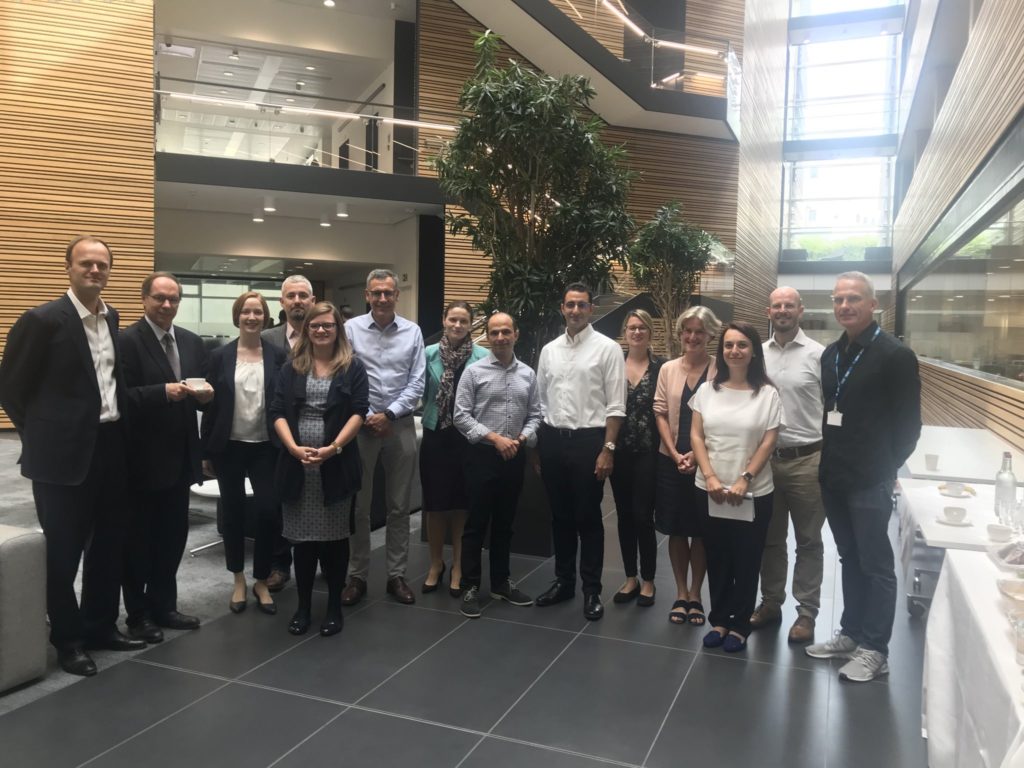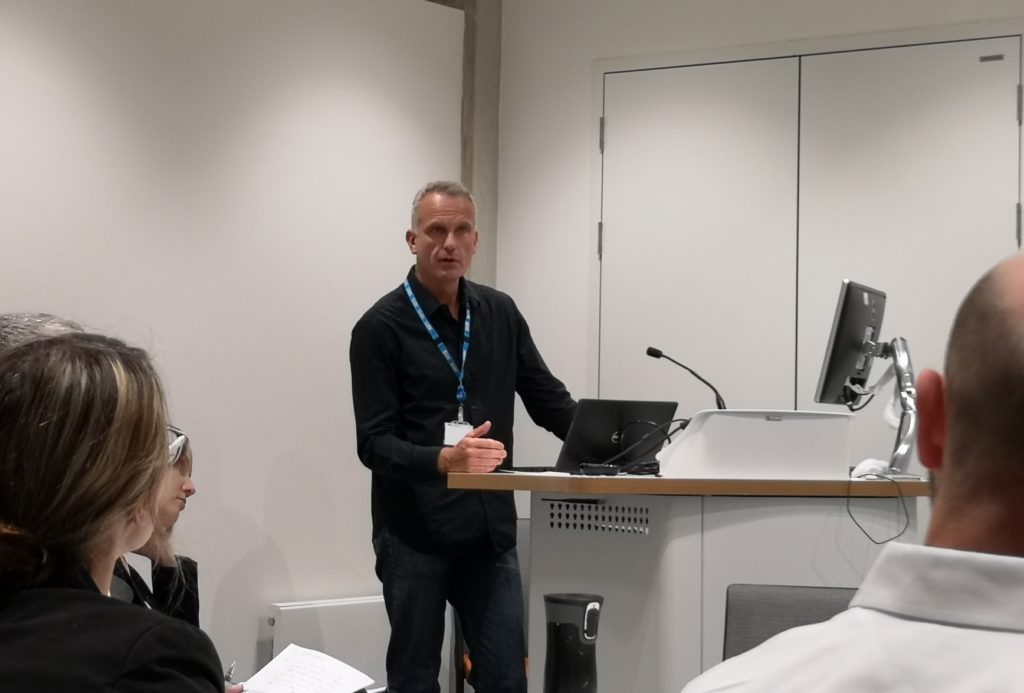A group of emerging health sector leaders taking part in a new national leadership programme have visited Oxford to learn about how academics, clinicians and industry partners are collaborating to drive innovation to benefit patients.

The Immersion Day, which was organised by the NIHR Oxford Biomedical Research Centre (BRC), allowed the participants, who come from a range of backgrounds, to hear from leading BRC researchers and industry partners about how partnerships in Oxford were making a difference in areas such as gene therapy and the use of patient data.
The participants are the first cohort of the FLIER (Future Leaders in Innovation, Enterprise and Research) programme, run by the Academy of Medical Sciences. The two-year scheme aims to “develop leaders of the future who can create collaborations across academia, industry, the NHS and government to drive innovation”.
These ‘emerging leaders’ were welcomed to the University of Oxford’s Big Data Institute by the Chief Executive of Oxford University Hospitals (OUH) NHS Foundation Trust, Dr Bruno Holthof, and the Oxford BRC’s Chief Operating Officer, Dr Vasiliki Kiparoglou.
Dr Holthof said that one of his aims was to ensure that OUH was “more interconnected with the University of Oxford, but also with private companies who could help to drive innovation and the adoption of innovation”.
“It’s extremely important that we break down the barriers between academia and the health system, but also the private sector. There are a lot of preconceived notions about each other, which hinder collaboration,” he said, adding that the initiatives the participants would hear about during the day were great examples of how these barriers were being overcome.
He described the BRC as a “wonderful creation” that has been very successful as a partnership, and certainly helps to break down some of the barriers between academics and clinicians. More importantly, it is increasingly having clear benefits for patients, and also the ability to work with the private sector to commercialise innovation so that it can be more widely adopted.”
Among the speakers was Dr Nick Scott-Ram, Chief of Strategic Development at Sensyne Health (formerly Drayson Technologies), which has a five-year agreement with OUH and the University of Oxford to commercialise digital health innovations developed in Oxford, often with support from the Oxford BRC. Dr Scott-Ram outlined how the agreement worked to the benefit of all parties and the model Sensyne has developed to use anonymised NHS data in an ethical way that protects patient confidentiality.

Prof Robert MacLaren (left), the Oxford BRC’s Theme Lead for Surgical Innovation, told attendees about his world-leading gene therapy work to tackle both rare and common causes of sight loss and the subsequent creation of a spin-out company, Nightstar Therapeutics, which was floated as a publicly traded company on the NASDAQ stock exchange in September 2017, and recently bought out by Biogen for $800m.
The participants also heard from Prof Lionel Tarassenko, the Oxford BRC’s Theme Lead for Technology and Digital Health, who discussed Partnership Working in Digital Health; and Laurens De Bruijn, Commercial Director of the Oxford University Clinic, a collaboration between the University of Oxford, OUH and Mayo Clinic Healthcare
They rounded off the day with a visit to the University’s BioEscalator, a new life sciences hub designed with early-stage businesses in mind.